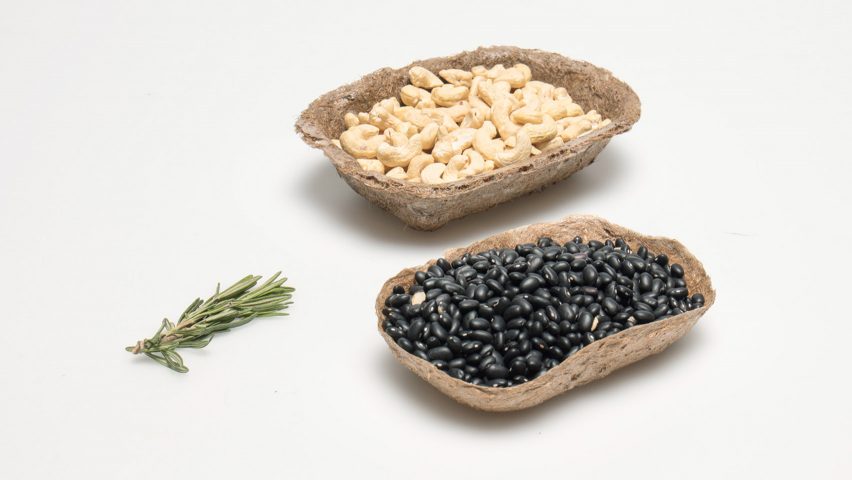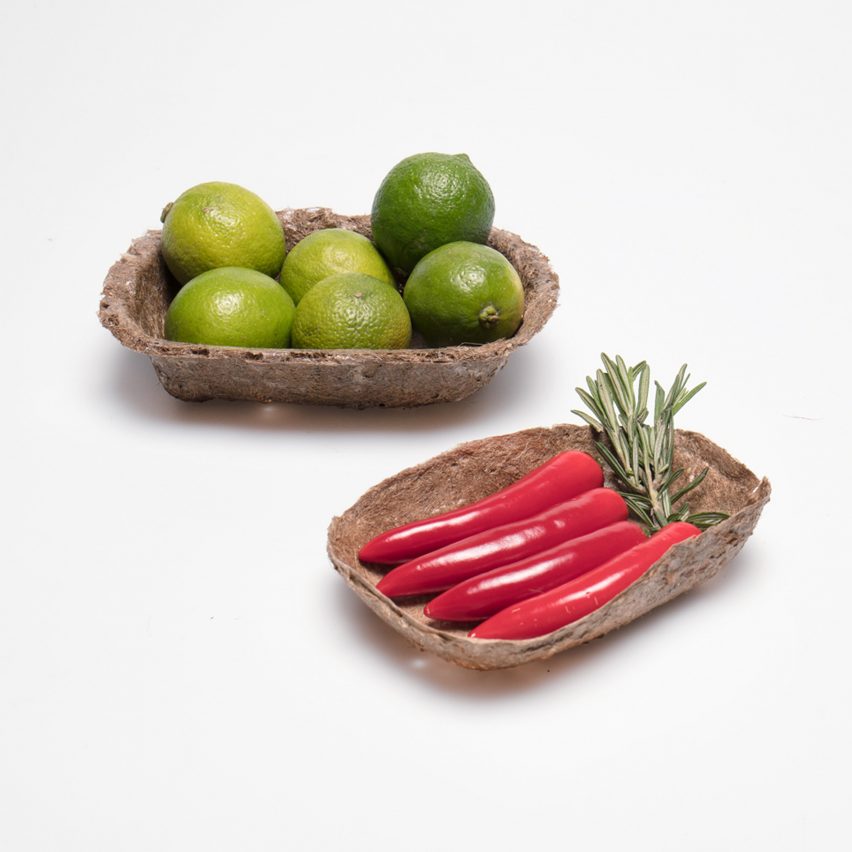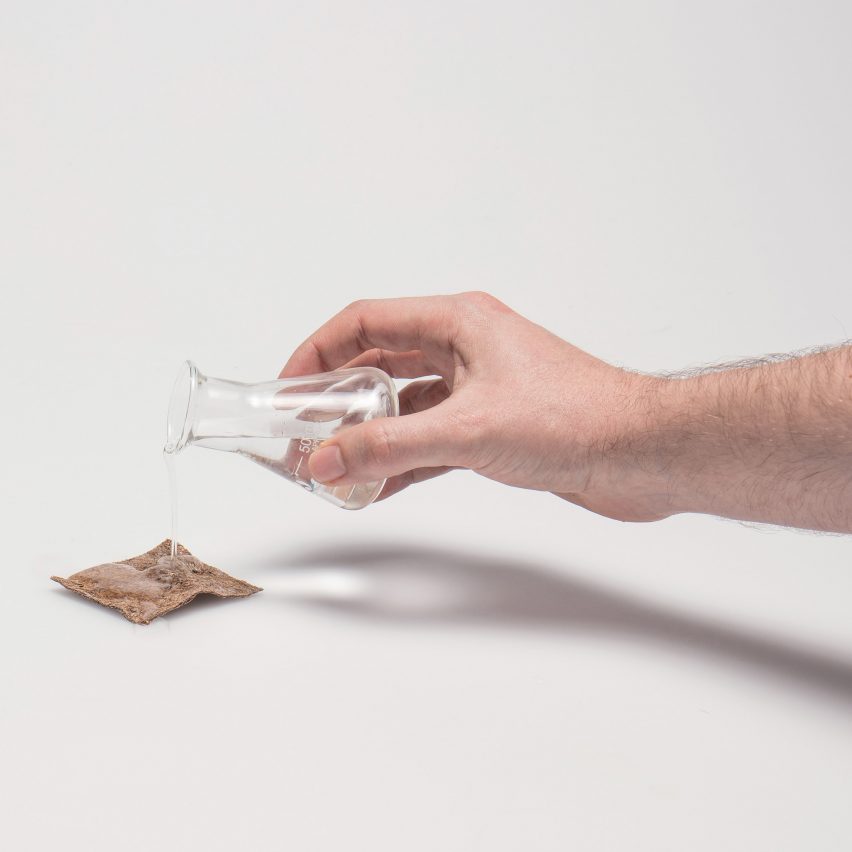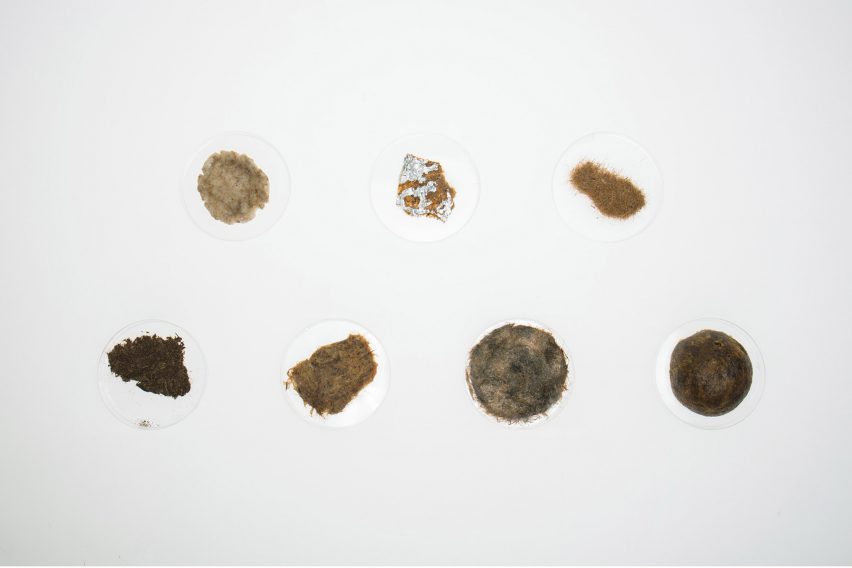
Biodegradable seagrass packaging promises to reduce plastic waste
Royal College of Art student Felix Pöttinger has created a sustainable alternative to plastic food packaging using washed-up seagrass.

The German designer, who created the POC packaging as part of his Design Products masters, claims the material is not only completely biodegradable but has antibacterial properties that help keep dry food fresh. Pöttinger hopes POC will reduce both food and plastic packaging waste.
The dried seagrass fibre is bound together using a cellulose-based extract from the plant. Once mixed, the seagrass is pressed into a metal mould and baked until completely dry.

"It's a natural waste material, and past research showed that it is highly resistant against mould," the designer told Dezeen. "I'm only using the dead seagrass fibres that appear on the beaches of the Mediterranean coast, so there is no industrial harvesting process to harm the population of the seagrass or any living being."
Pöttinger believes that the bio-composite material could be easily integrated into the industrial process, and has made prototype POC containers based on the shape of existing packaging.
He worked with Tesco and the Microsoft Research centre on the project, to better understand large-scale food supply chains and the possibilities of technology. The designer also tested the composite in materials labs for its antibacterial and structural qualities.
Pöttinger now plans to set up a materials-based company, which will investigate the possibilities for POC, and continue testing it to ensure the material can meet EU food packaging regulations.
Seagrass, which grows underwater and washes up on beaches in the Mediterranean, has also been used by Ilse Crawford for products in her Ikea collaboration, and by German designer Carolin Pertsch in a collection of seating.
"This project is about building links across disciplines to bring together expertise and promote the power of design and its role in society," said Pöttinger. "The outcome should react to the problems and threats of our society and our relationship with food."

"With a global food waste of approximately 1.3 billion tonnes, and 15 million tonnes of food-related plastic waste a year, it is our responsibility as designers to solve this massive problem by new material approaches," he continued.
Other biodegradable alternatives to common plastics have been created using a range of materials, including fallen leaves, algae, flax and even crab shells.
Major brands have also started to take notice of the need for more sustainable packaging, with Nike recently launching a shoebox made from reclaimed plastic. Taking into account the effect of plastic waste on animals, a Florida brewery has developed biodegradable six-pack rings that can be safely eaten by marine wildlife.
Photography is by Felix Pöttinger.